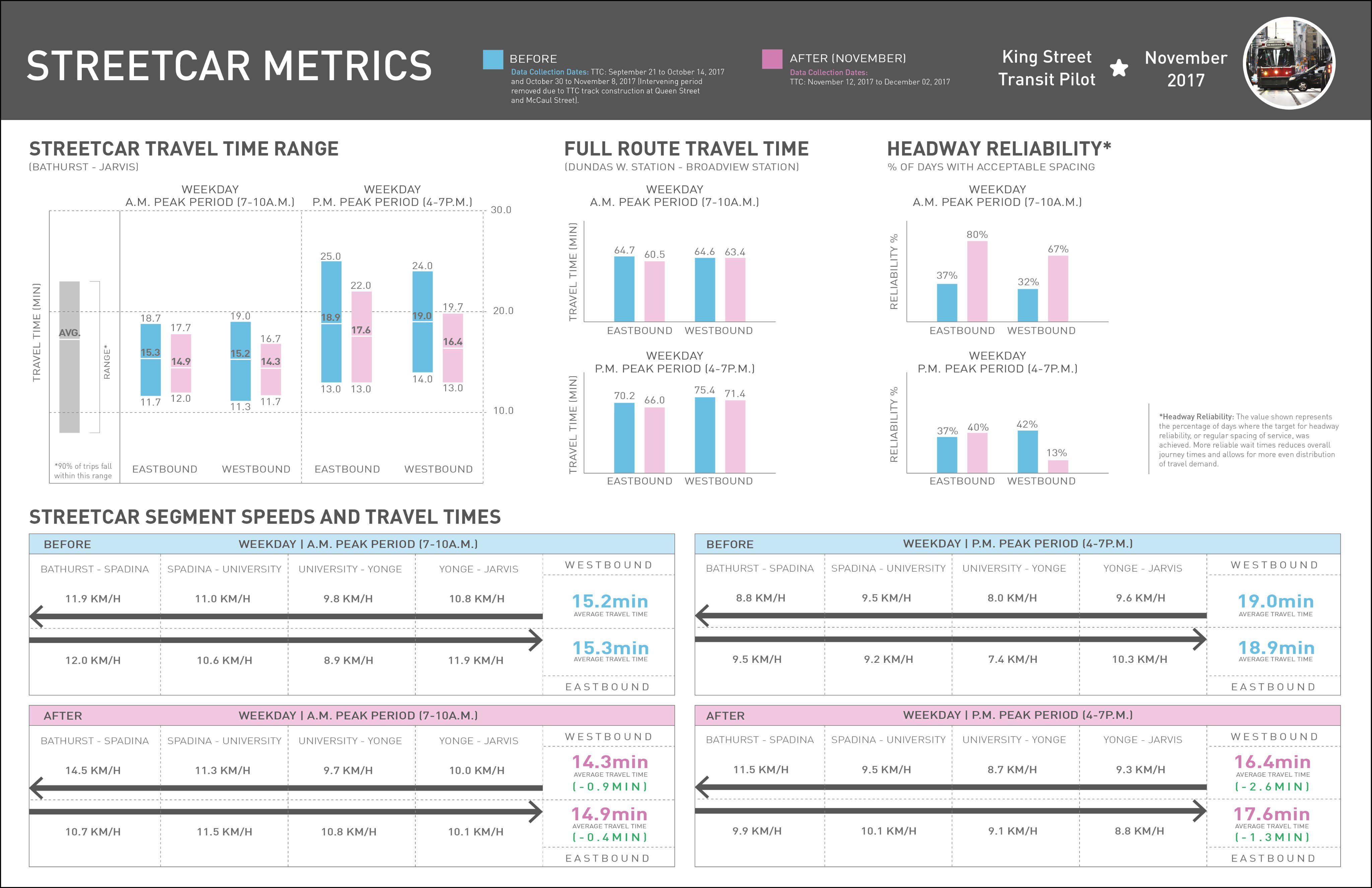News release issued by the City this afternoon
First set of transit and traffic data released for King Street Transit Pilot
Today, the City of Toronto released the first set of data on the King Street Transit Pilot, a transit-priority pilot project on King Street from Bathurst Street to Jarvis Street.
The transit pilot launched on November 12 in an effort to improve transit service, support economic prosperity and improve public space. The pilot project is being monitored for impact on transit service, traffic flow on parallel streets and effects on cyclists, pedestrians and local businesses through data collection and public feedback.
"Measurement is vital to the King Street pilot, and will ensure we can make any necessary adjustments so the street and surrounding area works for transit customers, cyclists, pedestrians, drivers and business owners as well as local residents,” said Mayor John Tory. "We also appreciate the feedback of local businesses, transit users, and the taxi industry and will continue to address any concerns as quickly as possible."
The data released today represents the first two weeks of travel time monitoring for both streetcars and vehicles. Preliminary findings include:
• The reliability of streetcar travel times has improved for both the morning (7 to 10 a.m.) and afternoon (4 to 7 p.m.) rush hours.
• The most significant improvement has been during the afternoon rush hour, when the upper range of streetcar travel times has improved from 25.0 minutes to 22.0 minutes eastbound and 24.0 to 19.7 minutes westbound.
• Average streetcar travel times have improved for the afternoon rush hours. The most significant improvement has been westbound, with a 2.6 minute improvement in average travel time through the pilot area.
• Average vehicle travel times on most streets in the pilot area have seen variations (+/-) of around a minute or less compared to before the pilot.
• In some cases, where increases in vehicle travel times of more than a minute are present, other conditions have been identified which most likely caused the delay.
The City continues to measure and evaluate the transit pilot through:
• A partnership with Miovision to capture and analyze multi-modal traffic data to study changes to pedestrian, cycling and vehicle volumes throughout the pilot area;
• The use of Bluetooth and GPS technology to monitor and evaluate streetcar and vehicle travel times; and
• Continued monitoring and evaluation of the economic impacts of the pilot, including obtaining transactional trend data as well as working with local businesses and Business Improvement Areas.
“This initial set of data shows improvements in the reliability and travel times of the streetcar, with minimal impacts on travel times for vehicles on other routes in the downtown," said Barbara Gray, General Manager of Transportation Services. "We will examine the data and make any operational improvements necessary to ensure people can move quickly and reliably through the downtown no matter how they travel.”
Data from to the King Street Transit Pilot will be released on a monthly basis, around the 12th of each month.
Baseline (or "before") data was collected prior to the launch of the pilot to be used as a benchmark for the data now being collected.
The full data dashboard and additional information about the transit pilot is available on the project website at http://www.toronto.ca/kingstreetpilot and will be made available through the City’s Open Data portal.
This news release is also available on the City of Toronto website at http://ow.ly/IDpz30hbwko.
Last edited:





